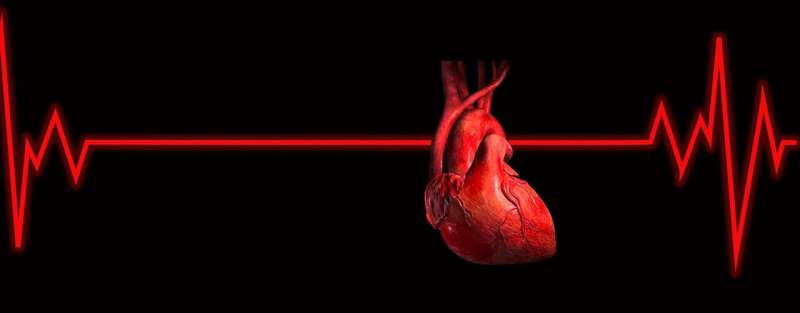This article has been reviewed according to Science X's editorial process and policies. Editors have highlighted the following attributes while ensuring the content's credibility:
fact-checked
trusted source
proofread
Artificial intelligence may help predict—possibly prevent—sudden cardiac death

Predicting sudden cardiac death, and perhaps even addressing a person's risk to prevent future death, may be possible through artificial intelligence (AI) and could offer a new move toward prevention and global health strategies, according to preliminary research presented at the American Heart Association's Resuscitation Science Symposium 2023, held Nov. 11–12, in Philadelphia.
"Sudden cardiac death, a public health burden, represents 10% to 20% of overall deaths. Predicting it is difficult, and the usual approaches fail to identify high-risk people, particularly at an individual level," said Xavier Jouven, M.D., Ph.D., the lead author of the study and professor of cardiology and epidemiology at the Paris Cardiovascular Research Center, Inserm U970-University of Paris.
"We proposed a new approach not restricted to the usual cardiovascular risk factors but encompassing all medical information available in electronic health records."
The research team analyzed medical information with AI from registries and databases in Paris, France and Seattle for 25,000 people who had died from sudden cardiac arrest and 70,000 people from the general population, with data from the two groups matched by age, sex and residential area.
The data, which represented more than 1 million hospital diagnoses and 10 million medication prescriptions, was gathered from medical records up to 10 years prior to each death. Using AI to analyze the data, researchers built nearly 25,000 equations with personalized health factors used to identify those people who were at very high risk of sudden cardiac death. Additionally, they developed a customized risk profile for each of the individuals in the study.
The personalized risk equations included a person's medical details, such as treatment for high blood pressure and history of heart disease, as well as mental and behavioral disorders including alcohol abuse. The analysis identified those factors most likely to decrease or increase the risk of sudden cardiac death at a particular percentage and time frame, for example, 89% risk of sudden cardiac death within three months.
The AI analysis was able to identify people who had more than 90% of risk to die suddenly, and they represented more than one fourth of all cases of sudden cardiac death.
"We have been working for almost 30 years in the field of sudden cardiac death prediction, however, we did not expect to reach such a high level of accuracy. We also discovered that the personalized risk factors are very different between the participants and are often issued from different medical fields (a mix of neurological, psychiatric, metabolic and cardiovascular data)—a picture difficult to catch for the medical eyes and brain of a specialist in one given field," said Jouven, who is also founder of the Paris Sudden Death Expertise Center.
"While doctors have efficient treatments such as correction of risk factors, specific medications and implantable defibrillators, the use of AI is necessary to detect in a given subject a succession of medical information registered over the years that will form a trajectory associated with an increased risk of sudden cardiac death. We hope that with a personalized list of risk factors, patients will be able to work with their clinicians to reduce those risk factors and ultimately decrease the potential for sudden cardiac death."
Among the study's limitations are the potential use of the prediction models beyond this research. In addition, the medical data collected in electronic health records sometimes include proxies instead of raw data, and the data collected may be different among countries, requiring an adaptation of the prediction models.





















